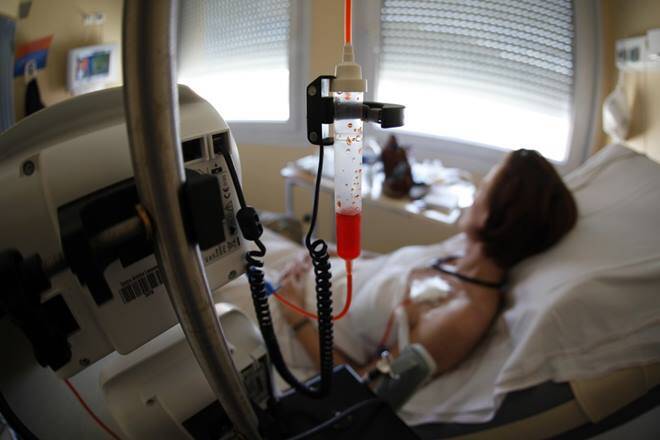
Cancer is one of those modern diseases that can affect people at any age. It is a serious and devastating disease that no one would wish even upon their worst enemies. Moreover, due to peoples’ lifestyles in today’s times, the risk of getting cancer continues to rise.
According to the 2020 report on cancer, the global cancer burden is significantly rising. As per the report, there could be 29.4 million cancer cases per year by 2040, which is a 47% rise from 2020.
ADVERTISEMENT
What makes cancer scarier to combat is the expensive treatment costs, with India having the least affordable cancer treatment globally. This information came to light after the American Society of Clinical Oncology conducted a study. This is why getting a comprehensive cancer care policy will become the need of the hour.

Introduction to Cancer Care Policies
A cancer care policy can provide multifaceted benefits to policyholders. Unlike traditional health insurance plans, a cancer care policy offers a lump sum payout on the diagnosis of cancer. This cash payment helps in paying for your medical expenses and acts as a supplementary income. Furthermore, the lump sum amount can be used for any cancer treatment of your choice and at any hospital.
Some insurance providers also include a premium waiver under pre-specified circumstances like early-stage diagnosis. Additionally, if no claims are made during a year, the sum insured is raised by a fixed percentage. Insurance providers offer discounts on premium if the policy purchased exceeds a predetermined amount.
Most insurance companies also include coverage for the multiple stages of cancer, which is of great help to policyholders. Ultimately, the specifics and benefits of a cancer care policy depend upon the insurance provider chosen. Hence, it is essential to study the terms and conditions carefully before making your decision. While doing this, it is critical to study the inclusions and exclusions in the cancer care policy.
ADVERTISEMENT
Imagine a scenario where you purchased an excellent policy, and you were diagnosed with cancer after that, but your claim was rejected? Why? Because that particular plan did not cover the cancer that you were diagnosed with. To prevent this from happening to you, ensure you examine the exclusions and inclusions.

Cancer Stages Covered Under Cancer Care Policies
1. Carcinoma in Situ (CIS)
Also known as the first stage, this is when the patient is affected with cancer for the first time. In this stage, there are abnormal tissues that can turn cancerous.
2. Early Stage
In the early stages, malignant cells can penetrate and destroy surrounding tissues.
3. Major Stage
ADVERTISEMENT
In this stage, a malignant tumour takes over and grows wildly. The cancerous cells start damaging normal tissues as well here.
4. Critical Stage
This stage is extremely critical as the cancer has spread to other parts of the body. This stage is better known as advanced cancer.

7 Things Your Cancer Care Policy Does Not Cover
1. All four stages of cancer if they are caused indirectly or directly as a result of sexually transmitted diseases like AIDS and HIV. This is a common exclusion across most cancer insurance policies.
ADVERTISEMENT
2. Cancer caused due to contamination or damage by biological attacks, chemical sources, weapons, or nuclear attacks.
3. Cancer caused due to consumption of alcohol, tobacco, narcotics, or drugs. This is only valid for those drugs that have not been prescribed by registered medical practitioners.
4. Cancer caused as a result of congenital conditions. The exclusion is applicable irrespective of whether the cancer was detected at a minor or major stage.
5. Cancer that was diagnosed before purchasing the cancer care policy.
ADVERTISEMENT
6. If cancer was diagnosed within 6 months of purchasing the cancer care policy. This exclusion depends on the insurance provider chosen.
7. Recently, some insurance providers have also begun adding skin cancer to the list of exclusions.

Examine the Exclusions in Your Cancer Care Policy
It is important to be aware of the exclusions in your policy, or you might suffer financially while battling cancer. Apart from this, if you have purchased a cancer care policy, but you are not pleased with it, you can cancel it within 15-30 days of purchasing it. This period is known as a free look period, and it allows policyholders to examine their plans and cancel them in case of too many exclusions.
It is in your best interest to get the information related to the cancer care policy in detail before purchasing. More importantly, remember to buy it from a reputable insurer such as Care Health Insurance to remain stress-free about your financial security in case of a medical emergency.
ADVERTISEMENT

ADVERTISEMENT











